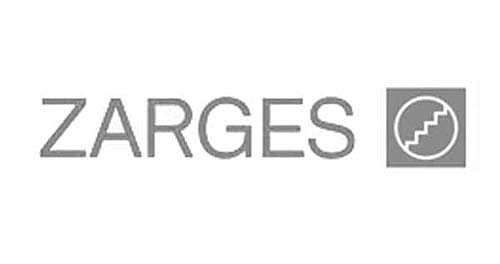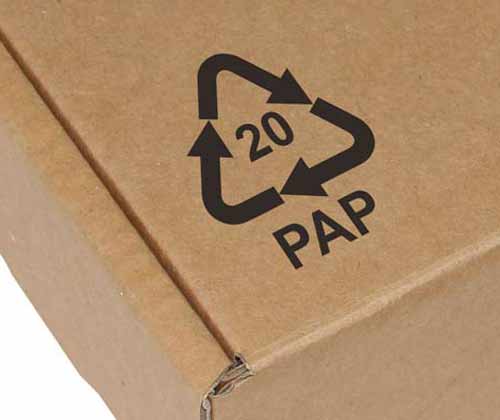
Legal requirements for aerospace packaging
There are numerous, strict aerospace packaging regulations that extend well beyond simply protecting items in transit.
For example, international frameworks like IATA’s Dangerous Goods Regulations, alongside sector-specific standards like STANAG 4280 and MIL-STD-2073-1, place responsibility on manufacturers and suppliers to ensure components are transported safely, securely, and in compliance with stringent industry rules. Packaging in this context is designed to protect precision-engineered parts against vibration, moisture, static discharge, and contamination, all of which could compromise safety or performance once in service.
At GWP Group, we have extensive experience of designing and manufacturing aerospace packaging that meets the stringent requirements of the aerospace sector. This includes us being part of the the Joint Supply Chain Accreditation Register (JOSCAR).

Important note:
This page aims to provide a comprehensive list of regulations that could potentially apply to aerospace packaging. It also indicates which regulations may affect packaging you purchase or are looking to source from GWP Group, and areas where we are currently unable to assist.
Please also note that as all scenarios and applications vary, not all regulations are likely to apply to all aerospace packaging solutions. Please contact us and/or speak with the appropriate regulatory body for further clarification if needed.
The information provided on this page was last updated on 5th November 2025, and is correct to the best of our knowledge at the time of writing. Due to the evolving nature of many of the regulations detailed on this page, our packaging experts will periodically review and update this content as required.
Table of contents
The following regulations apply to aerospace packaging in the UK. Please note this list is not exhaustive, and is subject to change as regulations are updated, introduced or replaced. Not all regulations apply to all forms of aerospace packaging.
- Defence Standard 81-41: Packaging of Defence Material
- ATA Spec 300 – Specification for Packaging of Airline Supplies
- MIL-STD-2073-1 – Military Packaging Standard (US)
- STANAG 4280 – Waterproof Testing of Military Packaging Systems
- Extended Producer Responsibility EPR
- The Packaging (Essential Requirements) Regulations 2015
- IATA Dangerous Goods Regulations
- Joint Supply Chain Accreditation Register (JOSCAR)
Defence Standard 81-41: Packaging of Defence Material
Defence Standard 81-41: Packaging of Defence Material is a UK Ministry of Defence (MoD) standard specifying comprehensive requirements for the design, environmental protection, marking, handling, and lifecycle of packaging used for defence and aerospace material.
- It defines packaging levels (e.g., J, N, P) based on storage conditions and duration.
- It includes guidance on marking, environmental testing, and durability requirements.
- It emphasises reusability and stringent material and process controls.
GWP Group can supply packaging that conforms to Defence Standard 81-84 requirements, having access to multiple designers with MPAS accreditation.
More information
ATA Spec 300 - Specification for Packaging of Airline Supplies
ATA Spec 300 – Specification for Packaging of Airline Supplies is an industry benchmark for reusable shipping containers in commercial aviation, setting durable design and performance expectations.
- It categorises containers by ruggedness and usage frequency (e.g., Category 1 for frequent use).
- It ensures containers can withstand repeated airline handling and protect high-value parts.
- UK aerospace supply chains widely adopt it for reliability.
GWP Group can assist our customers in designing, manufacturing and sourcing packaging that complies with ATA Spec 300 requirements. This includes the mdification of a wide range of compatible thrird party products (e.g. protective cases).
More information
MIL-STD-2073-1 - Military Packaging Standards (US)
MIL-STD-2073-1 is a detailed US military standard prescribing packaging methods, materials, and performance criteria for fragile or mission-critical components.
- It is often flowed down to UK defence suppliers working with US programmes.
- It covers tailored packaging design, preservation, cushioning, and marking.
- It is used for high-risk or highly sensitive aerospace items.
GWP Group can work alongside our customers exporting to US customers to ensure that packaging specifications are met.
More information
STANAG 4280 - Waterproof Testing of Military Packaging Systems
STANAG 4280 – Waterproof Testing of Military Packaging Systems, is a NATO standard that defines waterproofing tests and validation for military packaging systems.
- It validates packaging’s ability to resist water ingress under transport/storage conditions.
- It is critical for aerospace parts exposed to harsh or maritime environments.
GWP Group can supply packaging solutions, including a range of third party products (for example, waterproof cases manufactured by Peli, SKB etc.) that comply with the STANNAG 4280 guidelines.
More information
Extended Producer Responsibility (EPR)
In 2023, the Extended Producer Responsibility (EPR) legislation was introduced, which states that producers must report and pay for packaging waste based on the type and volume they use.
For example, electronics exporters must track material use, recyclability, and labelling (e.g., “widely recycled” icons). This legislation applies to products and shipping packaging.
GWP Group can help our customers comply with their legal responsibilities as specified in EPR legislation by supplying detailed product and usage statistics. Please note we are not able to submit EPR figures/returns directly for our customers, and doing so remains their responsibility. GWP can, on request, print any applicable logos or legal information on our customers packaging, providing this information is supplied to us in print ready arwork files prior to manufacture. GWP cannot take responsibility for the omission of information or the inclusion of incorrect information on our customers packaging.
More information
The Packaging (Essential Requirements) Regulations 2015
The Packaging (Essential Requirements) Regulations 2015 is UK legislation that lays out essential criteria for packaging, including recoverability, metal content limits, and technical documentation obligations.
- It ensures materials used are recyclable, aligning with aerospace sustainability goals.
- It regulates metal concentrations (e.g., heavy metals) in packaging.
- It requires retained technical documentation proving compliance.
Our design approach at GWP is to always minimise material use and aid recyclability for end users. We place significant emphasis on eco-friendly design, as evidenced by our Starpack Awards (including the Green Star award in 2018). This is in addition to a wide range of sustainability initiatives throughout our business.
More information
IATA Dangerous Goods Regulations
The IATA (International Air Transport Association) Dangerous Goods Regulations are the global standard that governs the safe transport of dangerous goods by air. It incorporates the ICAO Technical Instructions and adds airline-specific requirements.
- It prescribes packaging performance standards (UN specification, inner/outer combinations) for all classes of dangerous goods shipped by air.
- Aerospace shipments often include lithium batteries, chemicals, and pressurised containers, all requiring packaging to meet DGR specifications.
- It requires hazard labels, handling marks, and documentation on packaging to ensure traceability and safety during air transport.
- It directly applies to UK aerospace supply chains, since most international movements of aircraft parts and spares rely on air freight.
GWP Group, as part of Macfarlane Group, can supply a limited range of packaging suitable for dangerous goods. Please note that suitability of our packaging is dependant on the specific requirements of our customers products and application(s).
More information
Joint Supply Chain Accreditation Register (JOSCAR)
JOSCAR is an accreditation and compliance system used across the defence, aerospace, security, and space sectors. It provides a centralised platform where suppliers are pre-qualified, their compliance data is collected, validated, and kept up to date, so buyers can more easily assess whether a supplier is ‘fit for business’.
GWP Group is JOSCAR registered as part of the Macfarlane Group.
More information
Quotes, technical info and advice
Speak with our aerospace packaging experts
The information on this page has been collated, checked and approved by several of our packaging experts:












































